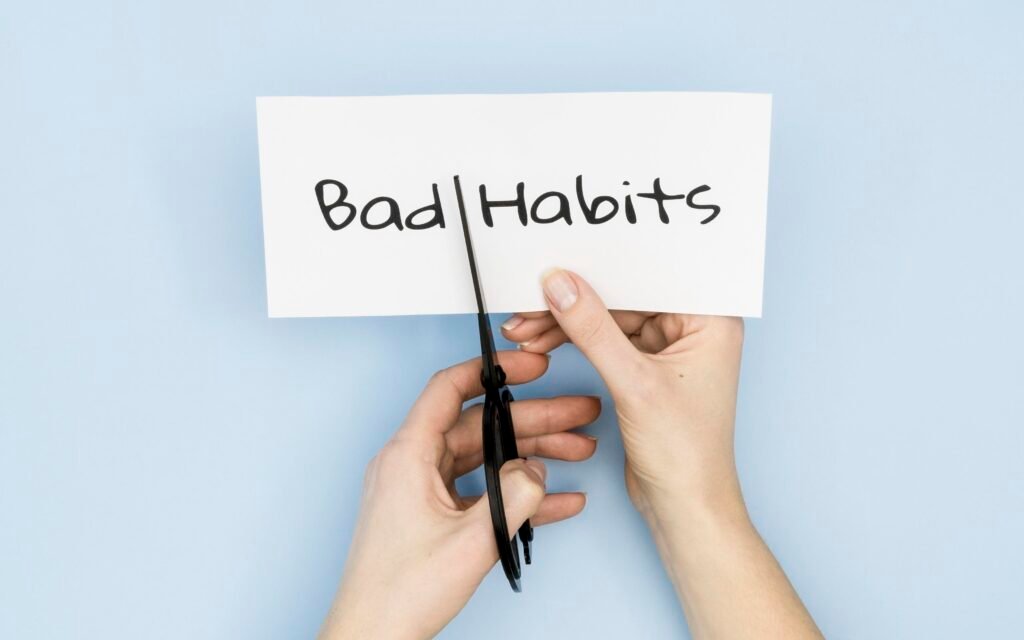Outline of the Article
- Introduction to Habits
- Psychological Mechanisms Behind Habits
- The Power of Habit
- Types of Habits
- Habit Formation and the Brain
- Breaking and Forming Habits
- The Habit Loop in Marketing and Business
- Emotional and Psychological Aspects of Habit Change
- The Impact of Habits on Personal Development
- Habits and Mental Health
- Cultural and Societal Influence on Habits
- Habitual Rituals in Daily Life
- Habitual Learning and Skill Development
- The Neuroscience of Habit Change
- Conclusion (The Psychology of Habits And Mindful Living)
- FAQS (The Psychology of Habits And Mindful Living)
The Psychology of Habits And Mindful Living
Introduction to Habits
The Psychology of Habits And Mindful Living are the routines, behaviors, or actions that we perform regularly, often without conscious thought. They are ingrained patterns that become automatic responses to certain situations or triggers. Habits can encompass a wide range of activities, from simple actions like brushing teeth or checking our phones frequently to complex behaviors like exercising regularly or procrastinating. These behaviors become so routine that they occur almost reflexively, without requiring much deliberate intention or decision-making. Essentially, habits are the actions we repeatedly do, forming a significant part of our daily lives and influencing our overall behaviors and lifestyle.
Psychological Mechanisms Behind Habits
The psychological mechanisms underpinning habits delve into the intricate processes that mold our behaviors. At the core lies the habit loop—a cyclical sequence involving cues, routines, and rewards. Cues act as triggers, prompting habitual actions, which lead to rewards, reinforcing the behavior loop. This cycle becomes etched within our brains through neuroplasticity, as habitual actions create neural pathways that make these behaviors more automatic over time. Repetition solidifies these pathways, cementing habits into our daily routines. Understanding these psychological mechanisms unravels how habits form, why they persist, and how they become an integral part of our subconscious actions, shaping our daily existence.
The Power of Habit

Image Credit Freepik
The power of habit lies in its profound influence over our actions and decisions. Habits, deeply ingrained in our routines, often steer our behaviors more than conscious intentions. They streamline our actions, shaping our lifestyle choices and guiding our daily routines. Whether positive or negative, habits wield considerable control, becoming the default mode for many of our actions. This power emanates from their ability to conserve mental energy, allowing us to navigate through life’s complexities more efficiently. Understanding the sway of habits empowers us to harness their potential for personal growth, productivity, and well-being, shaping a more intentional and fulfilling life.
Types of Habits
Habits encompass a spectrum of behaviors that shape our daily lives, ranging from constructive routines to less favorable patterns. Constructive habits, such as regular exercise, healthy eating, and consistent sleep schedules, contribute positively to our well-being and productivity. On the other hand, detrimental habits like procrastination, excessive screen time, or unhealthy eating patterns hinder our progress and overall health. Recognizing these categories allows us to differentiate between habits that support our goals and those that impede our growth. Understanding the distinction between these types of habits serves as a crucial step toward fostering positive changes and cultivating behaviors that align with our aspirations.
Habit Formation and the Brain
Habit formation intertwines closely with the intricate workings of the brain. As habits solidify, the brain undergoes structural changes, primarily within regions associated with routine behaviors. This process involves the reinforcement of neural connections, where repeated actions carve distinct pathways within the brain, notably in the basal ganglia. These neural adaptations facilitate the transition of behaviors from intentional actions to automatic responses triggered by specific cues. Understanding the brain’s involvement in habit formation illuminates how these neural adjustments create the foundation for habitual behaviors, making certain actions nearly instinctive as they become deeply embedded in our daily routines.
Breaking and Forming Habits

Image Credit Freepik
Breaking old habits and forming new ones involves a blend of deliberate effort and consistency. Disengaging from established habits requires identifying triggers or cues that initiate the routine and replacing the associated behavior with an alternative. Strategies like gradual changes, setting specific goals, and creating a supportive environment aid in breaking detrimental habits. Conversely, forming new habits involves repetition and consistency to embed desired behaviors into daily routines. Setting clear, achievable goals, implementing cues that prompt the new behavior, and rewarding oneself for progress are effective techniques in cultivating constructive habits. Both breaking and forming habits demand commitment and patience, leveraging the brain’s adaptability to rewire neural pathways and integrate new behaviors into daily life.
The Habit Loop in Marketing and Business
The habit loop’s application in marketing and business strategies capitalizes on understanding consumer behaviors and creating habitual patterns. By identifying cues that trigger consumer actions, businesses design routines or behaviors they aim to encourage, and then offer rewards that reinforce these actions. Through targeted marketing, companies create associations between their products or services and certain cues, fostering habitual purchasing behaviors. This approach leverages the habit loop’s concept to establish a routine of consumer engagement, enhancing brand loyalty and shaping repeat purchasing habits. Understanding and utilizing this loop in marketing endeavors enable businesses to influence consumer decision-making and foster long-term relationships with their audience.
Emotional and Psychological Aspects of Habit Change

Image Credit Freepik
The emotional and psychological dimensions deeply intertwine with the process of habit change. Emotions play a pivotal role in habit formation and modification, often serving as triggers or motivators for certain behaviors. Understanding the emotional context behind habits aids in recognizing the underlying drivers that sustain them. Overcoming psychological barriers, such as stress, anxiety, or self-doubt, forms a crucial aspect of habit change. Implementing strategies that address emotional triggers, along with fostering a supportive mindset, resilience, and self-compassion, significantly contribute to successful habit modification. Acknowledging these emotional and psychological aspects is essential for effectively navigating the complexities of habit change and fostering sustainable, positive behaviors.
The Impact of Habits on Personal Development
Habits serve as the cornerstone of personal development, shaping our daily actions and ultimately defining our journey of growth. Constructive habits, from consistent learning and goal-setting to fostering healthy routines, play a pivotal role in propelling us toward our aspirations. They cultivate discipline, resilience, and a growth-oriented mindset, nurturing continuous self-improvement. Conversely, detrimental habits impede personal development, hindering progress and limiting our potential. Recognizing the profound impact of habits on personal growth empowers individuals to cultivate habits that align with their values, aspirations, and long-term objectives, thereby fostering a path toward continual advancement and fulfillment.
Habits and Mental Health
Habits wield significant influence over mental health, intricately intertwined with our emotional well-being. Constructive habits, such as practicing mindfulness, regular exercise, adequate sleep, and nurturing social connections, bolster mental resilience and contribute to a positive mental state. Conversely, negative habits, like excessive stress, unhealthy coping mechanisms, or self-isolation, can adversely affect mental health, leading to increased anxiety or depression. Recognizing the correlation between habits and mental health underscores the importance of cultivating positive routines and seeking support to foster emotional balance and well-being. By consciously nurturing habits conducive to mental health, individuals can take proactive steps toward nurturing a positive and resilient mindset.
Cultural and Societal Influence on Habits

Image Credit Freepik
Cultural and societal influences play a pivotal role in shaping our habitual behaviors, reflecting the norms, values, and traditions embedded within our communities. These influences dictate the rituals, customs, and routines that permeate various aspects of our lives, from mealtime habits and social interactions to work ethics and decision-making processes. Cultural norms mold our behaviors, defining what is deemed acceptable or expected within a particular society. Societal structures and expectations further reinforce these habits, impacting how we navigate daily life and interact with others. Understanding these cultural and societal influences unveils the diversity of habits across different regions and populations, highlighting the profound impact of societal norms in shaping our behaviors and routines.
Habitual Rituals in Daily Life
Habitual rituals are the comforting rhythms that punctuate our daily lives, offering a sense of structure and familiarity. From the morning routines that kickstart our day to the evening rituals that wind us down, these habitual practices shape our experiences. They encompass a spectrum of activities, from brewing a morning cup of coffee to journaling before bedtime, providing a sense of predictability and comfort in an otherwise dynamic world. These rituals serve as anchors, grounding us amidst the chaos of daily life, fostering a sense of stability and aiding in mental preparation for the day ahead or relaxation at day’s end. Embracing and nurturing these rituals infuses a sense of mindfulness and intentionality into daily routines, enhancing overall well-being.
Habitual Learning and Skill Development

Image Credit Freepik
Habitual learning serves as the bedrock for skill development, offering a pathway to mastery through consistent practice and repetition. This approach involves establishing routines that prioritize continual learning and skill enhancement. By dedicating regular time to deliberate practice and learning new concepts or techniques, individuals cultivate a disciplined approach to skill development. Habitual learning strategies, such as daily practice sessions, spaced repetition, and setting specific learning goals, facilitate the gradual acquisition and refinement of skills. This consistent engagement fosters a deeper understanding, proficiency, and eventual mastery in various domains, underscoring the profound impact of habitual learning in skill development.
The Neuroscience of Habit Change
The neuroscience of habit change delves into the intricate workings of our brain as we modify established behaviors. It involves understanding how our brain’s plasticity allows for the rewiring of neural pathways through deliberate efforts and consistent practice. Neuroscientific studies highlight that habit change entails breaking old associations and forming new ones, altering the connections between cues, routines, and rewards. These changes occur within various brain regions, particularly those linked to learning and decision-making, showcasing the brain’s adaptability. By comprehending the neurological underpinnings of habit change, individuals gain insight into reshaping behaviors, leveraging the brain’s ability to establish new routines and embed constructive habits into their daily lives.
Conclusion (The Psychology of Habits And Mindful Living)
Habits stand as influential forces shaping our daily existence, impacting our behaviors, decisions, and overall well-being. Understanding the intricate mechanisms behind habits, from the habit loop and brain’s involvement to the emotional aspects of habit change, empowers us to navigate our routines more intentionally. Recognizing the distinction between positive and detrimental habits and impact on personal growth, mental health and societal norms guides us in fostering constructive behaviors. Leveraging this knowledge allows for deliberate habit modification, paving the way for continuous self-improvement and more purposeful, fulfilling life. Embracing the power of habits involves not just recognizing their influence but also actively shaping them to align with our aspirations and values, fostering a path toward holistic growth and well-rounded living.
FAQS (The Psychology of Habits And Mindful Living)
Why are habits so hard to change?
Habits are deeply ingrained in our brains, making them resistant to change. However, with deliberate effort, habits can be modified over time.
Can anyone develop new habits successfully?
Yes, anyone can form new habits by employing effective strategies and consistent practice.
How long does it take to form a new habit?
The time required to form a habit varies but typically ranges from a few weeks to a few months, depending on the complexity of the habit.
Are all habits equally influential in our lives?
Not all habits hold the same level of significance. Some habits have a more profound impact on our daily functioning than others.
Can habits affect mental health?
Absolutely. Habits play a significant role in mental health, influencing stress levels, coping mechanisms, and overall well-being.
We thank you for reading our post “The Psychology of Habits And Mindful Living”
Read More
Everyone Must Know The Importance of Nature in Healing: A Comprehensive Guide 2023
Life Hack: Know The Purpose And Meaning of Your Life: A Comprehensive Guide 2023
Click Here for similar stories!